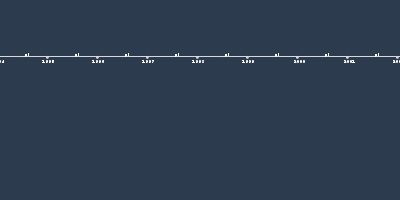11 sett 2011 anni - 2011: The impact of 9/11/2001: from national unity and mourning, to partisan-qualified xenophobia
Descrizione:
The coordinated attacks on the World Trade Center and the Pentagon on 9/11/2001 was a terrifying, startling, and humbling event for the country. The 9/11 attacks were the deadliest on American soil since the shock attack at Pearl Harbor 60 years before, and the sense of outrage was reminiscent of that moment. The attacks in New York occurred in the country’s busiest city on a busy workday. And the staggered nature of the attacks meant that news footage captured almost everything as it happened, ensuring that millions of Americans saw the events precisely as they unfolded.A review of U.S. public opinion in the two decades since 9/11 reveals how a badly shaken nation came together, briefly, in a spirit of sadness and patriotism; how the public initially rallied behind the wars in Afghanistan and Iraq, though support waned over time; and how Americans viewed the threat of terrorism at home and the steps the government took to combat it...
From the public’s perspective, the balance between protecting civil liberties and protecting the country from terrorism had shifted. In September 2001 and January 2002, 55% majorities said that, in order to curb terrorism in the U.S., it was necessary for the average citizen to give up some civil liberties. In 1997, just 29% said this would be necessary while 62% said it would not.
For most of the next two decades, more Americans said their bigger concern was that the government had not gone far enough in protecting the country from terrorism than said it went too far in restricting civil liberties.
The public also did not rule out the use of torture to extract information from terrorist suspects. In a 2015 survey of 40 nations, the U.S. was one of only 12 where a majority of the public said the use of torture against terrorists could be justified to gain information about a possible attack...
Most Republicans and GOP leaners said Islam was more likely than other religions to encourage violence. Today, 72% of Republicans express this view, according to an August 2021 survey.
Democrats consistently have been far less likely than Republicans to associate Islam with violence. In the Center’s latest survey, 32% of Democrats say this. Still, Democrats are somewhat more likely to say this today than they have been in recent years: In 2019, 28% of Democrats said Islam was more likely than other religions to encourage violence among its believers than other religions.
"Otherization" and xenophobia emerge
The partisan gap in views of Muslims and Islam in the U.S. is evident in other meaningful ways. For example, a 2017 survey found that half of U.S. adults said that “Islam is not part of mainstream American society” – a view held by nearly seven-in-ten Republicans (68%) but only 37% of Democrats. In a separate survey conducted in 2017, 56% of Republicans said there was a great deal or fair amount of extremism among U.S. Muslims, with fewer than half as many Democrats (22%) saying the same.
Views of Muslims, Islam grew more partisan in years after 9/11
The rise of anti-Muslim sentiment in the aftermath of 9/11 has had a profound effect on the growing number of Muslims living in the United States. Surveys of U.S. Muslims from 2007-2017 found increasing shares saying they have personally experienced discrimination and received public expression of support.
Source: https://www.pewresearch.org/politics/2021/09/02/two-decades-later-the-enduring-legacy-of-9-11/
Aggiunto al nastro di tempo:
Data:
11 sett 2011 anni
Adesso
~ 13 years ago
